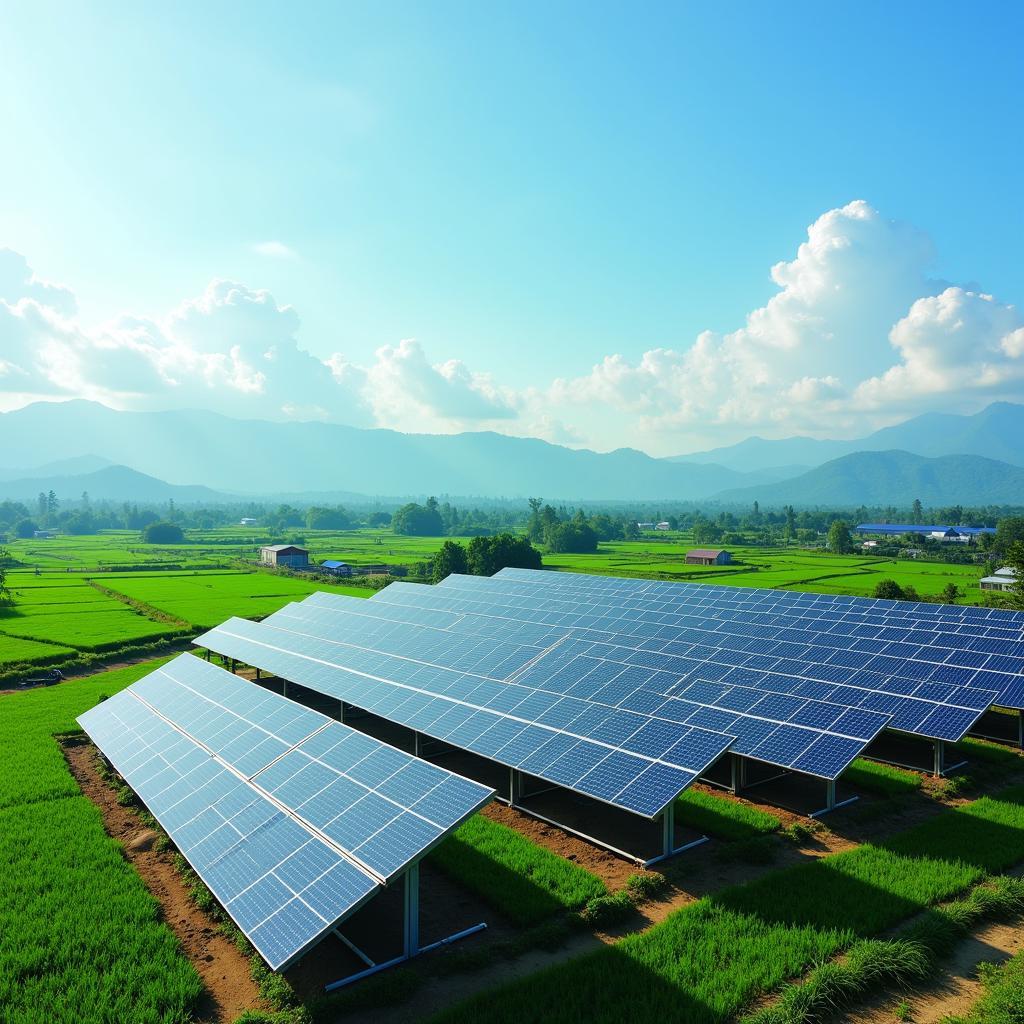The ASEAN-BRI partnership represents a significant development in the global economic landscape. This collaboration aims to bolster infrastructure, enhance connectivity, and stimulate economic growth across Southeast Asia, aligning with the ambitious goals of both ASEAN and China’s Belt and Road Initiative (BRI).
A Strategic Partnership for Growth
The Association of Southeast Asian Nations (ASEAN) and China have fostered a strong relationship based on shared interests and mutual benefits. The BRI, launched in 2013, seeks to revive ancient trade routes connecting China to Europe and Africa. ASEAN, with its strategic location and rapidly developing economies, has become a key partner in this ambitious endeavor.
The convergence of ASEAN’s vision for regional integration and China’s BRI has led to the implementation of numerous infrastructure projects across Southeast Asia. These projects encompass a wide range of sectors, including:
- Transportation: Roads, railways, ports, and airports are being upgraded and expanded to improve connectivity within ASEAN and between the region and the world.
- Energy: Power plants and energy grids are being developed to meet the growing energy demands of Southeast Asian nations.
- Telecommunications: Digital infrastructure is being enhanced to support the growth of e-commerce, digital services, and the digital economy.
Benefits and Opportunities for ASEAN
The ASEAN-BRI partnership offers significant benefits and opportunities for Southeast Asian countries:
- Enhanced Connectivity: Improved infrastructure facilitates the movement of goods, services, and people, boosting trade, tourism, and investment.
- Economic Growth: Infrastructure development creates jobs, stimulates economic activity, and attracts foreign direct investment.
- Regional Integration: The BRI promotes closer economic cooperation and integration among ASEAN member states.
- Access to Chinese Market: The initiative provides ASEAN businesses with greater access to the vast Chinese market.
- Technology Transfer: Collaboration on BRI projects facilitates the transfer of technology and expertise from China to ASEAN countries.
Addressing Challenges and Concerns
While the ASEAN-BRI partnership holds immense potential, it’s essential to address challenges and concerns:
- Debt Sustainability: Some ASEAN countries have expressed concerns about the potential for unsustainable debt burdens associated with BRI projects.
- Transparency and Governance: Ensuring transparency in project bidding and implementation is crucial to build trust and ensure accountability.
- Environmental Impact: Infrastructure projects must be developed sustainably, minimizing environmental damage and promoting ecological conservation.
- Social Inclusiveness: The benefits of BRI projects should be distributed equitably, benefiting local communities and addressing potential social impacts.
 ASEAN BRI Sustainable Development
ASEAN BRI Sustainable Development
Expert Insights on ASEAN BRI
Dr. Wei Ling Lau, Senior Economist at the ASEAN+3 Macroeconomic Research Office (AMRO):
“The ASEAN-BRI partnership has the potential to transform Southeast Asia’s economic landscape. However, it’s crucial to ensure debt sustainability, transparency, and environmental and social safeguards to maximize the benefits for all stakeholders.”
The Future of ASEAN-BRI Cooperation
The ASEAN-BRI partnership is expected to deepen in the coming years as both sides seek to leverage the opportunities presented by the initiative. Key areas of focus include:
- Promoting sustainable infrastructure development.
- Enhancing digital connectivity and e-commerce cooperation.
- Strengthening people-to-people exchanges and cultural ties.
- Addressing regional development gaps and promoting inclusive growth.
Conclusion
The ASEAN-BRI partnership represents a significant opportunity to unlock Southeast Asia’s economic potential and promote regional integration. By addressing challenges collaboratively and ensuring sustainable and inclusive development, this partnership can pave the way for a more prosperous and interconnected future for both ASEAN and China.
Need support? Contact us 24/7:
Phone: 0369020373
Email: aseanmediadirectory@gmail.com
Address: Thon Ngoc Lien, Hiep Hoa, Bac Giang, Vietnam.